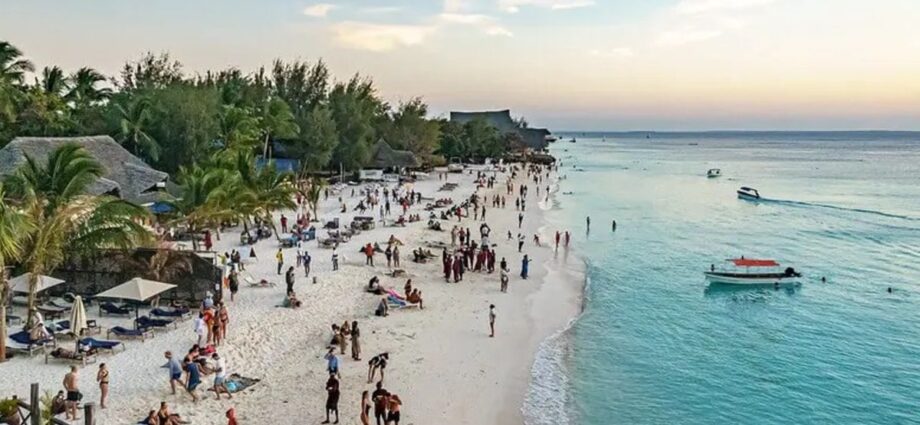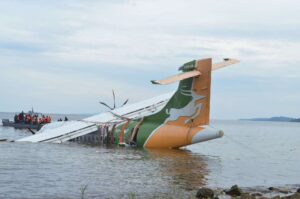
Unguja. Zanzibar recorded a notable rise in international arrivals in April 2025, welcoming 37,137 visitors, a 28.1 percent increase compared to the same month in 2024, according to figures released by the Office of the Chief Government Statistician on May 9.
However, the island experienced a 38.5 percent drop from the record-breaking 60,345 visitors in March 2025, tourism analysts say the month-on-month decrease is a typical seasonal fluctuation, as the industry moves from its peak into a quieter travel season.
Despite the dip, the overall trend reflects Zanzibar’s steady post-pandemic recovery and its rising status as a preferred destination for both leisure and cultural tourism.
As in previous months, Europe continued to dominate Zanzibar’s source markets, accounting for half of all arrivals. Germany topped the list, contributing 10.2 percent of all tourists, followed by South Africa (7.6 percent), and the United Kingdom (5.1 percent). Italy remained among the top five, despite a monthly decline, supported by a strong showing earlier in the year.
Significantly, Zanzibar is beginning to reap the benefits of strategic engagement with non-traditional markets. Tourists from India, China, and Israel posted impressive growth, with Israeli arrivals skyrocketing by 243 percent year-on-year. Chinese visitors nearly doubled (up 98.5 percent) compared to April 2024, while Indian tourists increased by 39.8 percent.
“These gains reflect the success of long-term efforts to diversify Zanzibar’s tourism base,” said a senior tourism official. “We’re seeing encouraging results from years of outreach to Asian and Middle Eastern markets.”
The majority of tourists—88.3 percent (32,779)—entered the archipelago by air. Of these, 26,879 arrived on international flights, while 5,900 used domestic connections. Another 4,358 visitors arrived through seaports, including 39 via cruise ships and 4,319 on ferries from mainland Tanzania.
Holidaymakers continue to form the bulk of Zanzibar’s international visitors, with 99.1 percent of all arrivals listing leisure as their main reason for travel. The remainder came to visit friends and relatives or for personal and business reasons.
Men slightly outnumbered women, making up 53.2 percent of arrivals. In terms of age, most visitors—84 percent—were between 15 and 64 years, the typical working-age group. Children under 15 accounted for 8.5 percent, while those aged 65 and above made up 7.5 percent.
The average intended stay was seven days, with most visitors spending between five and seven days on the island.
Zanzibar had a total of 884,430 bed spaces available in April. Of these, 247,083 were occupied, resulting in a 27.9 percent bed occupancy rate. While the rate reflects a slowdown from peak season, it remains higher than in previous years, indicating continued growth in tourism demand.
Across regions, Kenya stood out with a 101 percent increase in visitors compared to April 2024, reinforcing its role as a key regional market. South Africa also maintained strong numbers.
In Asia, significant gains came from India, Israel, and China, supported by improved air connectivity and targeted marketing.
In contrast, North America saw a decline, with U.S. visitor numbers dropping 46.7 percent from March. Canada also recorded a smaller but noticeable dip.
Meanwhile, Australia and New Zealand continued to provide modest but consistent contributions, accounting for just 0.6 percent of total arrivals.
Visitors from emerging markets—including Poland, India, Israel, Russia, Ukraine, and China—rose by 65 percent compared to April 2024. While some markets like Russia and Ukraine experienced monthly drops, their long-term growth remains promising, underscoring Zanzibar’s expanding global appeal.
As the tourism sector recovers from global disruption, officials say the April figures signal resilience—but also highlight the need for strategic planning. Stakeholders stress that Zanzibar must now focus on sustainable tourism, including investment in infrastructure, environmental protection, diversification of tourism products, and digital transformation.
“Zanzibar is no longer just a beach destination,” said a senior official at the Zanzibar Commission for Tourism. “It’s evolving into a culturally rich, year-round experience. But sustaining that growth will require deliberate investment in quality, accessibility, and sustainability.”














